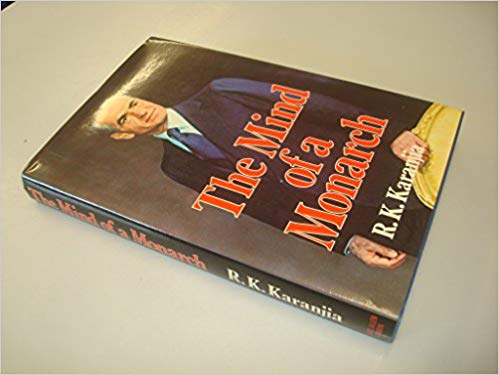My romance with Iran started when I was entering my teens. We didn’t have TV then, only radio (I am not talking about the stone age, it was 1965-66 or thereabouts). And one of my favourite radio stations was Radio Zahidan, not so much because of its programmes but because of an Urdu announcer with a sweet and mesmerizing voice. I had one of my earliest silent crushes on her. So much so that I had even planned to go to Zahidan and propose to her – my puppy love.
Those days Iran was ruled by Muhammad Reza Shah Pahlavi who, besides spending his summers in the Swiss Alps and the French-Italian Riviera, would often come to Pakistan in the winters to hunt partridges and boars, wine and dine with the Pakistani glitterati, make love to the lovely Pakistani film actresses, dancers, and singers, and witness the famous Horse & Cattle Show at Lahore. The Petro Sheikhs had not yet set up camps in the Islamic republic. Pakistan, then, was ruled by the only field marshal we have produced, the tall and handsome Ayub Khan. Handsome, I say, because the likes of Queen Elizabeth II and Jacqueline Kennedy would swoon in his company.
In 1965 a war flared up between Pakistan and India. Iran, despite being Pakistan’s ally in the US sponsored Central Treaty Organization (CENTO), restricted itself to sending us a field hospital and a team of doctors and pretty nurses to look after our war wounded. Iranians are a peace loving nation. Unlike the present day Ayatollahs, the Shah did not want his country to involve itself and become a partisan in foreign wars.
Prompted by Indira, Karanjia had been probing the Shah since 1966 by doing a series of interviews with him for the Blitz, the journal he edited. In 1968, the Shah arrived on a two week state visit to India, the first such visit after the partition of the Sub-Continent. There was a change in the air. Indira Gandhi, the not so old vixen, had enchanted the Shah. And then there were the harems of spellbinding Indian beauties, perhaps more alluring than their flesh eating and (sometimes) overweight Pakistani counterparts. The Shah disgorged his passions and, in return, said everything Indira Gandhi wanted him to say. He obliquely criticized Ayub Khan by saying that he could not believe there could be a press without the press freedom, forgetting momentarily about the press in his own country. He also praised Delhi as the “bastion of Persian language in the past”. Ayub Khan was miffed, tells Altaf Gauhar in his biography of Pakistan’s first military ruler. “Look at this stupid Shah. How he would come running to me every now and then”! He remarked to Altaf.

It appears that Indira, the scheming kite, during the revelry that went with the Shah’s orgiastic visit, introduced him to Rustom Khurshid Karanjia (R.K., in short), a Nau Ratan (one of the legendary nine gems) in the Nehru family’s court.
R.K. was a journalist by profession, editor of the famous Blitz weekly. He was a biographer of Nehru, a confidant of the Nehru family. An avowed communist by conviction, R.K had interviewed the Soviet Prime Minister Khrushchev, Egypt’s strongman Nasser, and the not so famous Lt Col Abdel Karim Kassem of Iraq. Kassem was, sometime later executed by Lt Col Abdus Salam Arif, his successor.
Kassem’s execution was shown live on TV while his daughter was forced to announce her father’s execution. Some people!
So, we were talking about R.K. He was a great sycophant who designed his interviews in a manner that superbly concealed his eulogizing. Besides being a sycophant with the caliber befitting a courtier, R.K. had a salty tongue. Nehru and Indira frequently unleashed him on their critics. In the Shah’s case, R.K.s most revealing asset was his being a Parsi- a scion of the ancient Iranian race. Indira knew that the Shah was immensely fascinated by his legendary progenitors, particularly Cyrus the Great, the founder of the Iranian empire some 2500 years ago. Reza Shah was planning to celebrate the founding of the empire at the end of 1970 in a grand manner.
Indira introduced R.K. to the Shah and suggested he write the monarch’s biography. The Shah agreed. After some time, R.K. went to Iran and did a long series of interviews with Reza Pahlavi, remarkably goading the king, without his knowing, about the ancient ties between Iran and India. R.K covered the Cyrus celebrations in October 1970. It was the beginning of a strategic dialogue between successive administrations of India and Iran that continued after Reza Shah’s exit from power and the coming of the Ayatollahs. It would not be a sweeping statement if I say that R.K.’s book – The Mind of a Monarch, did the groundwork for the relationship which resulted in the creation of the Indo-Iran-Russia Transport Corridor and the establishment of the Chah Bahar port.
I was interested to peep into Reza Shah’s mind in as much as it conjured about the Iran-Pakistan-India relationship. Excerpts: `
R.K. : In India, at about the same time great political leaders like Mahatma Gandhi, Jawaharlal Nehru, Maulana Azad, Ghaffar Khan and others had declared a non-violent war against British rule. Did they have any impact on your mind?
A. I cannot really say in what way those great Indian leaders influenced me. I remember, however, reading about Mahatma Gandhi’s trip to Europe in the European newspapers of those days. On returning to my country, I closely followed the struggle of the Indian people for freedom and independence. Obviously, we were 100 percent behind the movement, but the ways and means to achieve freedom must, I think, always be left to the people of a country. The Indian people understood and knew best how to fight for their freedom.

R.K. (After the abdication of your father in your favor, sic.) Where did he choose to spend the remaining years of his life? Europe? America?
A. Oh! No! He never wanted to enjoy the life of luxury offered by the Western world. Instead, he preferred to go to India, another ancient home of the Aryans.
R.K. Shall we now turn to the topic of Indo-Iranian friendship? I have been a pioneer advocate of closer relations between our two countries since 1966. So, after the signing of the Economic Protocol between India and Iran last year, and the exchange of state visits between yourself and our Prime Minister, Indira Gandhi, I feel more than satisfied that our countries have forged ties of amity and friendship as never before. This owes much to your personal initiative. Will you express your opinion on Indo-Iranian relations?
A. So many things bind our two countries together, as well as our neighbors, and my only aim, as you know, has been to promote peace, understanding and cooperation in this whole region. We can do great things together, either through bilateral cooperation or through some sort of regional cooperation. One day, which I hope will soon dawn, all differences between India, Pakistan and the other countries of our region will be settled; and perhaps we shall be able to travel through the continent by train, getting on in Tehran, and getting off in Delhi, or perhaps going even further, we might go to Bangladesh, which we also have recognized. And why shouldn’t Afghanistan, or Nepal, or even Bhutan, profit by such an inter-continental link-up?
R.K. I and my journal feel particularly gratified that you should have chosen us since 1966, as the medium for a series of interviews urging a political and economic understanding with India. These interviews today sound like the trumpet of a prophesy and attest to your wisdom and vision. Now that an Indo-Iranian entente has been accomplished, may I know what made you seek it so relentlessly?
A. Yes, Karanjia, you are a good witness to that, and I congratulate you and your journal on your initiative and enterprise in this matter of Indo-Iranian friendship. Only such understanding and goodwill among nations can save the world from the futility of wars. Even to our friends, the Pakistanis, whose interests we have at heart, I have always said that the only way for them in the future is to live in peace and collaborate with their neighbor. What could you gain from a war of revenge?
R.K. We know that. And even today we know what you have been doing in your own quiet way for the peace and stability of the sub-continent. I think we owe Pakistan’s recognition of Bangladesh more to Tehran than to Islamabad.
A. Well, we have to give due credit to Prime Minister Bhutto, for he had the courage to do the right thing. Nevertheless, my general concept is really to establish a genuine, peaceful collaboration and cooperation in our region, because in unity we should be capable of achieving big results. As you know, the RCD
(Regional Cooperation for Development) started in 1964, with the initial aim of promoting economic cooperation among its original members (Iran, Pakistan and Turkey). Now I have widened its scope and extended invitations to India, Afghanistan and Iraq to join the RCD. I have great expectations for our part of the world. For instance, from this mutual understanding and cooperation between our two countries, an immense lot of good could come if your country, along with Afghanistan and Iraq, accepted my invitation and joined RCD.














